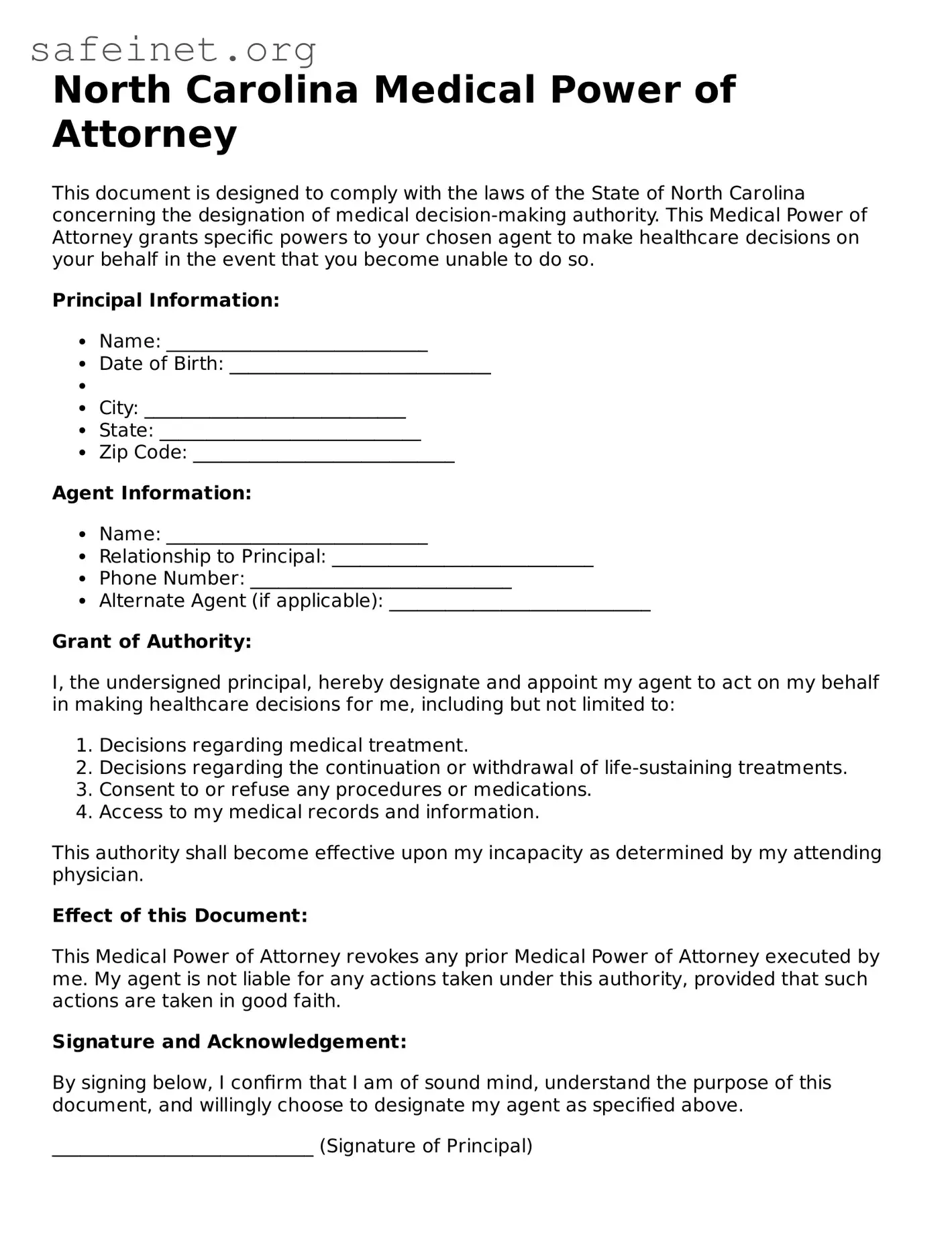North Carolina Medical Power of Attorney
This document is designed to comply with the laws of the State of North Carolina concerning the designation of medical decision-making authority. This Medical Power of Attorney grants specific powers to your chosen agent to make healthcare decisions on your behalf in the event that you become unable to do so.
Principal Information:
- Name: ____________________________
- Date of Birth: ____________________________
-
- City: ____________________________
- State: ____________________________
- Zip Code: ____________________________
Agent Information:
- Name: ____________________________
- Relationship to Principal: ____________________________
- Phone Number: ____________________________
- Alternate Agent (if applicable): ____________________________
Grant of Authority:
I, the undersigned principal, hereby designate and appoint my agent to act on my behalf in making healthcare decisions for me, including but not limited to:
- Decisions regarding medical treatment.
- Decisions regarding the continuation or withdrawal of life-sustaining treatments.
- Consent to or refuse any procedures or medications.
- Access to my medical records and information.
This authority shall become effective upon my incapacity as determined by my attending physician.
Effect of this Document:
This Medical Power of Attorney revokes any prior Medical Power of Attorney executed by me. My agent is not liable for any actions taken under this authority, provided that such actions are taken in good faith.
Signature and Acknowledgement:
By signing below, I confirm that I am of sound mind, understand the purpose of this document, and willingly choose to designate my agent as specified above.
____________________________ (Signature of Principal)
Date: ____________________________
Witnesses:
This document must be signed in the presence of two witnesses, neither of whom is designated as an agent.
____________________________ (Signature of Witness 1)
Date: ____________________________
____________________________ (Signature of Witness 2)
Date: ____________________________
